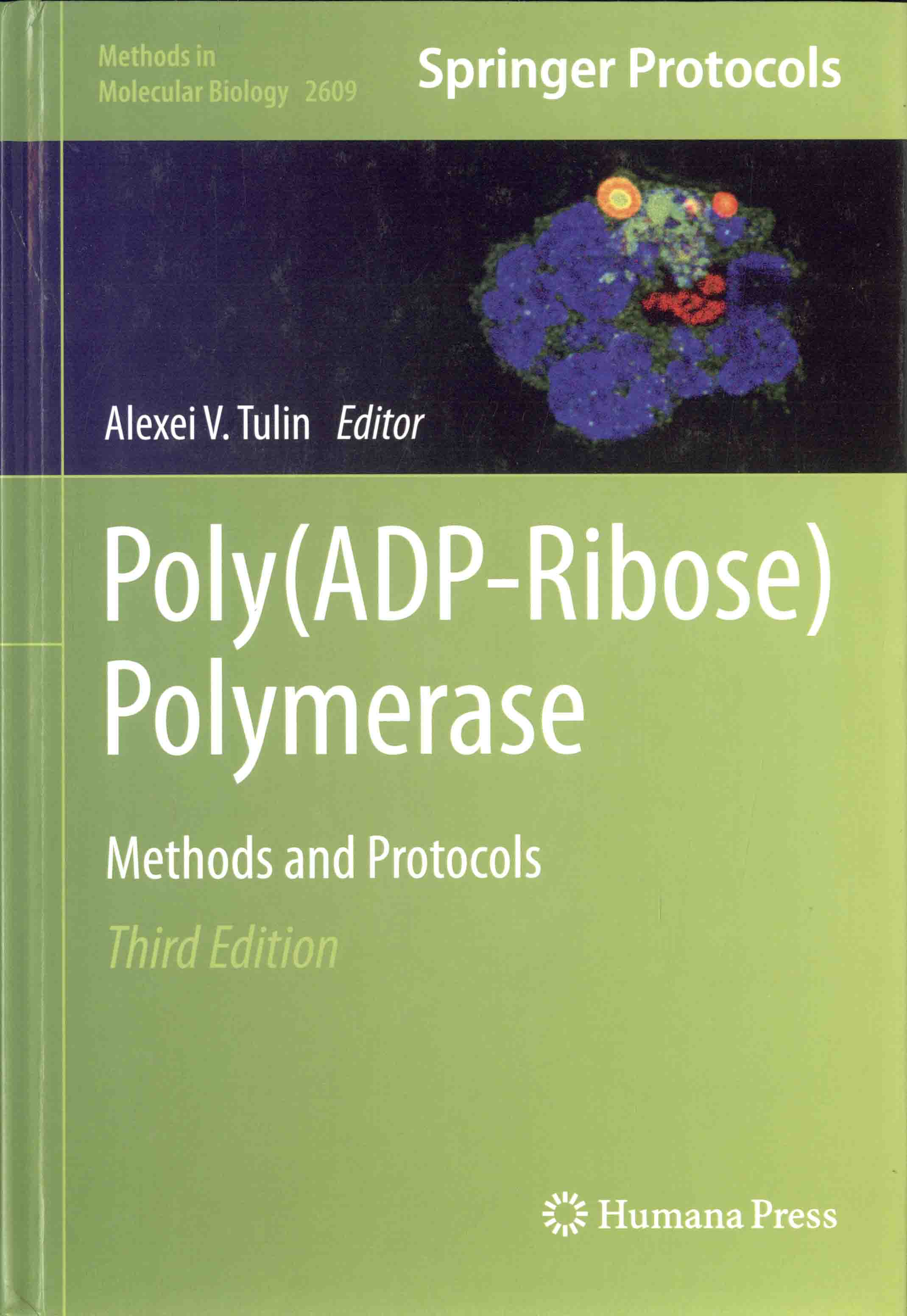 |
Poly(ADP-Ribose) polymerase : methods and protocols / edited by Alexei V. Tulin. -- Third edition. -- New York, NY : Humana Press, 2023. – (58.17/M592/v.2609) |
Contents
Preface
Contributors
PART I DETECTION AND QUANTIFICATION OF PADPR
1 Fluorescence-Based Analyses of Poly(ADP-Ribose) Length by Gel Electrophoresis, High-Performance Liquid Chromatography, and Capillary Electrophoresis
2 Detecting and Quantifying pADPr In Vivo
3 Quantitative Analysis of Nuclear Poly(ADP-Ribose) Dynamics in Response to Laser-Induced DNA Damage
4 Analyzing PARP1 Activity: Small Molecule Reactants and Attached Chains of Poly (ADP-Ribose)
5 Detecting Poly (ADP-Ribose) In Vitro and in Cells Using PAR Trackers
6 An Enzyme-Linked Immunosorbent Assay to Quantify Poly (ADP-Ribose) Level In Vivo
7 Subcellular Quantitation of ADP-Ribosylation by High-Content Microscopy
8 A Simple Method to Study ADP-Ribosylation Reversal: From Function to Drug Discovery
PART II IDENTIFICATION OF PROTEIN TARGETS
9 Immunoprecipitation Using Mono-ADP-Ribosylation-Specific Antibodies
10 A Clickable NAD+ Analog-Based Assay of Poly(ADP-Ribosyl)ated Proteins
11 Functional Analysis of Histone ADP-Ribosylation In Vitro and in Cells
PART III FUNCTIONAL ANALYSIS
12 Studying the Immunomodulatory Functions of PARP1 and PARP2 in Mouse Models of Cancer
13 Methods for Investigating Transient Receptor Potential Melastatin-2 (TRPM2): A Cation Channel Activated by ADP-Ribose and Involved in Cell Death
14 Methods to Assess the Role of PARPs in Regulating Mitochondrial Oxidative Function
15 Characterizing ADP-Ribosylation Sites Using Af1521 Enrichment Coupled to ETD-Based Mass Spectrometry
16 Cytological Approaches to Visualize Intracellular Dynamics of RNA-Binding Proteins at Active Genes in Drosophila
PART IV POLY(ADP-RIBOSYL)ATING PATHWAY IN CHROMATIN AND GENE EXPRESSION
17 Chromatin Immunoprecipitation Approach to Determine How PARP1 Domains Affect Binding Pattern to Chromatin
18 Approach to Measuring the Effect of PARP1 on RNA Polymerase II Elongation Rates
19 Examining the Effect of PARP-1 Inhibitors on Transcriptional Activity of Androgen Receptor in Prostate Cancer Cells
PART V USING ANIMAL MODELS
20 Using Drosophila Genetics to Identify Factors that Affect PARP1 Activity In Vivo
21 Generating PARP Knockout D. melanogaster with CRISPR/Cas9 System
22 TaqMan Multiplex qPCR Method to Genotype PARG Knockout Mice
PART VI DESIGNING AND TESTING PARP-1 INHIBITORS
23 Cell-Based Screening for New PARP Inhibitors Utilizing PARG-Mutated Mouse Embryonic Stem Cells
24 Quantification of PARP7 Protein Levels and PARP7 Inhibitor Target Engagement in Cells Using a Split Nanoluciferase System
PART VII TARGETING THE UNDERSTUDIED COMPONENTS OF PADPR PATHWAY
25 Purification of Recombinant Human PARG and Activity Assays
26 Purification of Recombinant Human PARP-3
Index